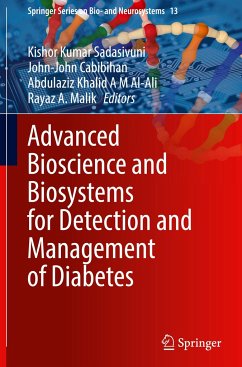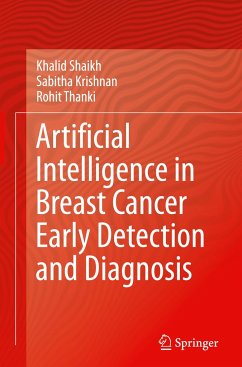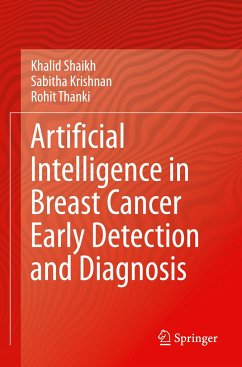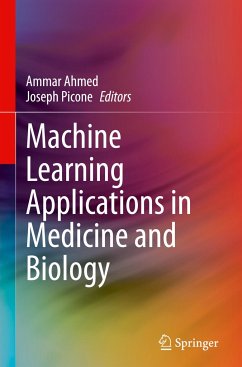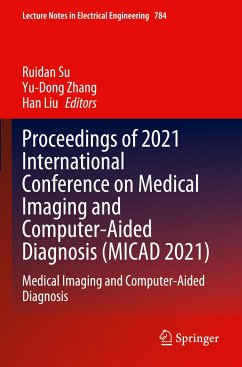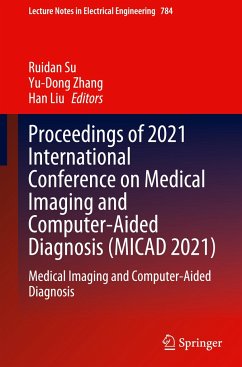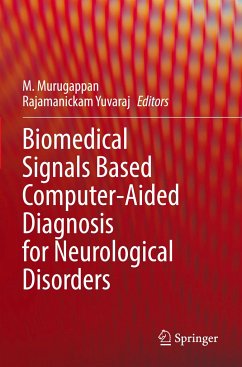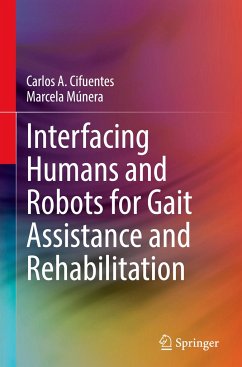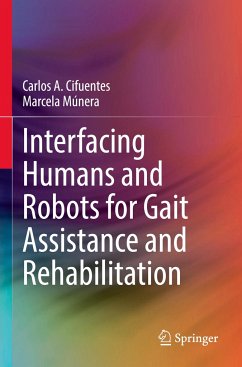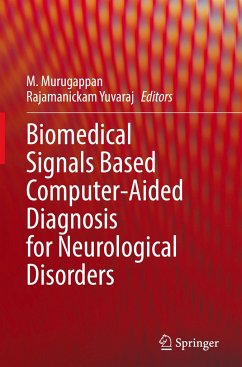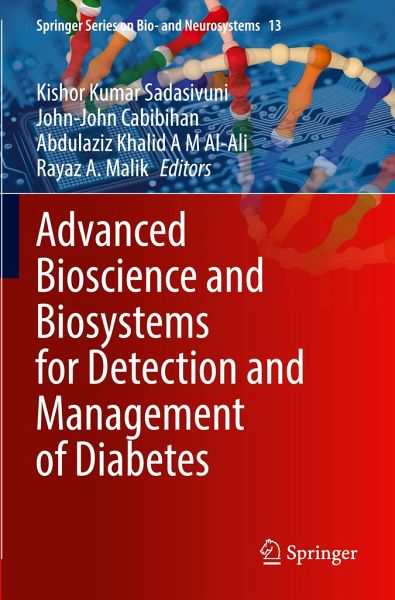
Advanced Bioscience and Biosystems for Detection and Management of Diabetes
Versandkostenfrei!
Versandfertig in 6-10 Tagen
151,99 €
inkl. MwSt.

PAYBACK Punkte
76 °P sammeln!
This book covers the medical condition of diabetic patients, their early symptoms and methods conventionally used for diagnosing and monitoring diabetes. It describes various techniques and technologies used for diabetes detection. The content is built upon moving from regressive technology (invasive) and adapting new-age pain-free technologies (non-invasive), machine learning and artificial intelligence for diabetes monitoring and management. This book details all the popular technologies used in the health care and medical fields for diabetic patients. An entire chapter is dedicated to how t...
This book covers the medical condition of diabetic patients, their early symptoms and methods conventionally used for diagnosing and monitoring diabetes. It describes various techniques and technologies used for diabetes detection. The content is built upon moving from regressive technology (invasive) and adapting new-age pain-free technologies (non-invasive), machine learning and artificial intelligence for diabetes monitoring and management. This book details all the popular technologies used in the health care and medical fields for diabetic patients. An entire chapter is dedicated to how the future of this field will be shaping up and the challenges remaining to be conquered. Finally, it shows artificial intelligence and predictions, which can be beneficial for the early detection, dose monitoring and surveillance for patients suffering from diabetes





